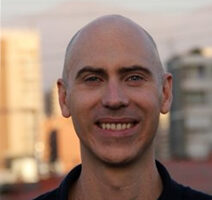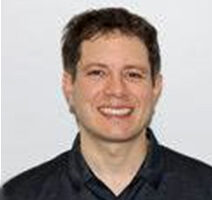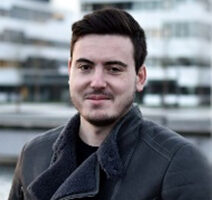Over two years ago, on March 11th 2020, the World Health Organization declared COVID-19 a pandemic. Since then, more than 470 million Covid-19-cases were registered and more than 6 million people have died. The measures required to contain the pandemic have brought to the fore the conflict between the power of the state and the individual freedom of citizens.
Vaccination and the rights and obligations associated with it have been at the center of this debate. Since the beginning of the pandemic, vaccinations have been seen as a key factor in ending the pandemic – but who agrees and who opposes? Who has changed their mind over time?
In this symposium, we will take a closer look at attitudes and vaccination behavior based on the data collected by the Understand_ELSED project. How have these changed over the course of the pandemic (late 2020 to late 2021)? What are the influencing factors? To what extent can we identify polarization of vaccination opponents and supporters? What role do conspiracy theories play? Under what conditions is mandatory vaccination advocated or opposed?
After a short introduction of the overall project, six short presentations will provide insights into the different subprojects, which approach the above mentioned questions from different perspectives. The program is as follows:
- Understand_ELSED: An introduction (Project Team, 5 min)
- Representative Online Survey and Diary Study: Vaccination willingness: Development over time and influencing factors (Axel Pfleger, 10 min)
- Representative Online Survey: Social biases and vaccination willingness: An experiment (Eric Jensen, 10 min)
- Social Media Analysis: Pandemic or infodemic? Social media platforms as a (mis)information source for vaccinations (Lars Lorenz, 10 min)
Questions and Break
- Interview Study: “But what about the side effects!?” – Lines of argumentation in the context of the COVID-19 vaccines (Lisa Herbig, 10 min)
- Interview Study: Identity Management and Vaccination Willingness: Who am I and who are “the others”? (Meike Watzlawik, 10 min)
- Representative Online Survey & Interview Study: Vaccination, Polarization and Conspiracy: Longitudinal case studies (Brady Wagoner, 10 min)
- Conclusion and Final Discussion (all)
We invite the audience to discuss the results, implications for practice as well as (the lack of) ethical and global perspectives in the vaccination debate with us.
The presentation and discussion will be hosted online via Zoom. Please join us on May 11th at 6 p.m. at (local time Berlin/UTC + 2 hours):
Zoom Link: https://us02web.zoom.us/j/85774044436
Meeting-ID: 857 7404 4436
Kenncode: 512658
We welcome registration via e-mail: meike.watzlawik@sfu-berlin.de
The speakers
 Axel Pfleger graduated in Science Communication and Bionics with distinction. His experience in science communication evaluation and social research includes international events such as the Cheltenham Science Festival and The Best-Of InScience, as well as his influential research thesis analysing the European Space Agency’s strategic communication and publics’ attitudes toward the Agency. Recently, Axel has worked on the Understand_ELSED project, focusing on public attitudes and science communication during the COVID-pandemic in Germany.
Axel Pfleger graduated in Science Communication and Bionics with distinction. His experience in science communication evaluation and social research includes international events such as the Cheltenham Science Festival and The Best-Of InScience, as well as his influential research thesis analysing the European Space Agency’s strategic communication and publics’ attitudes toward the Agency. Recently, Axel has worked on the Understand_ELSED project, focusing on public attitudes and science communication during the COVID-pandemic in Germany.

Brady Wagoner received his PhD from the University of Cambridge on a Gates Cambridge scholarship. He is currently Professor at Aalborg University. His research focuses on how people construct meaning in their lives in communication with others within cultural frameworks. His recent books include The Constructive Mind: Bartlett’s Psychology in Reconstruction (Cambridge University Press, 2017) and Remembering as a Cultural Process with Ignacio Bresco and Sarah H. Awad (Springer 2019). He has received several major awards, including the Humboldt Research Prize in 2021.

Eric Jensen is an Associate Professor of Sociology at the University of Warwick, where he teaches on public engagement with science, audience research and survey research methodology. He is a highly experienced social scientist, internationally recognised evaluator and science communication consultant and scholar with 20 years of professional experience in this field. He is the author of Doing Real Research: A Practical Guide to Social Research (SAGE). Jensen’s PhD is in sociology from the University of Cambridge.

Lars Lorenz is specialised in managing the research process while keeping client requirements closely aligned with project deliverables and deadlines. He gained extensive experience with RRI as work package leader in NUCLEUS. More recent work includes other projects (RRING, GRRIP or TeRRIFICA) in research operations, project management and quantitative analysis and reporting. He worked as a scientific associate at Rhine-Waal University after graduating with a first degree in Science Communication and Bionics.

Lisa Herbig is a PhD candidate in Political Science at the Amsterdam Institute for Social Science Research (AISSR) of the University of Amsterdam and the Duitsland Instituut Amsterdam (DIA) where she studies the impact of the COVID-19 pandemic on support for the European Union. Previously, Lisa has worked on the Understand_ELSED project, focusing on the support for preventive measures, vaccination willingness, trust in political and scientific actors as well as conspiracy beliefs. Her research integrates quantitative and qualitative research methods. Lisa holds a Master in Intercultural Psychology from Osnabrück University and a Bachelor in Psychology from the Goethe University Frankfurt.

Meike Watzlawik is Professor for Development, Education and Culture at the Sigmund Freud University Berlin. She is the scientific director of the Institute for Psychological Research at the SFU. The combination of different methodologies is her preferred approach when examining identity development in different population. As part of an international network, Watzlawik has worked with scholars from all over the world, presented the collaborative work at conferences or in recognized publications like the Oxford Handbook of Culture and Psychology.
The project Understand_ELSED*, funded by the Federal Ministry of Education and Research, investigates how people in Germany experience the pandemic, what challenges they face in the context of the pandemic and what ways they find to cope with them. Central to this is the information that is available to the public about the COVID 19 pandemic, or which is made available to them, and how they handle this information over time. Reception of scientific misinformation, risk perceptions and attitudes to mitigation behaviors were assessed. Insights from this research will inform recommendations about how to improve public resilience to misinformation and/or its negative effects on public health and solidarity in society.
Understand-ELSED is an acronym for Understanding the Ethical, Legal, and Socio-Economic Dimensions of the COVID-19 Outbreak.

 Zurück zur Übersicht
Zurück zur Übersicht